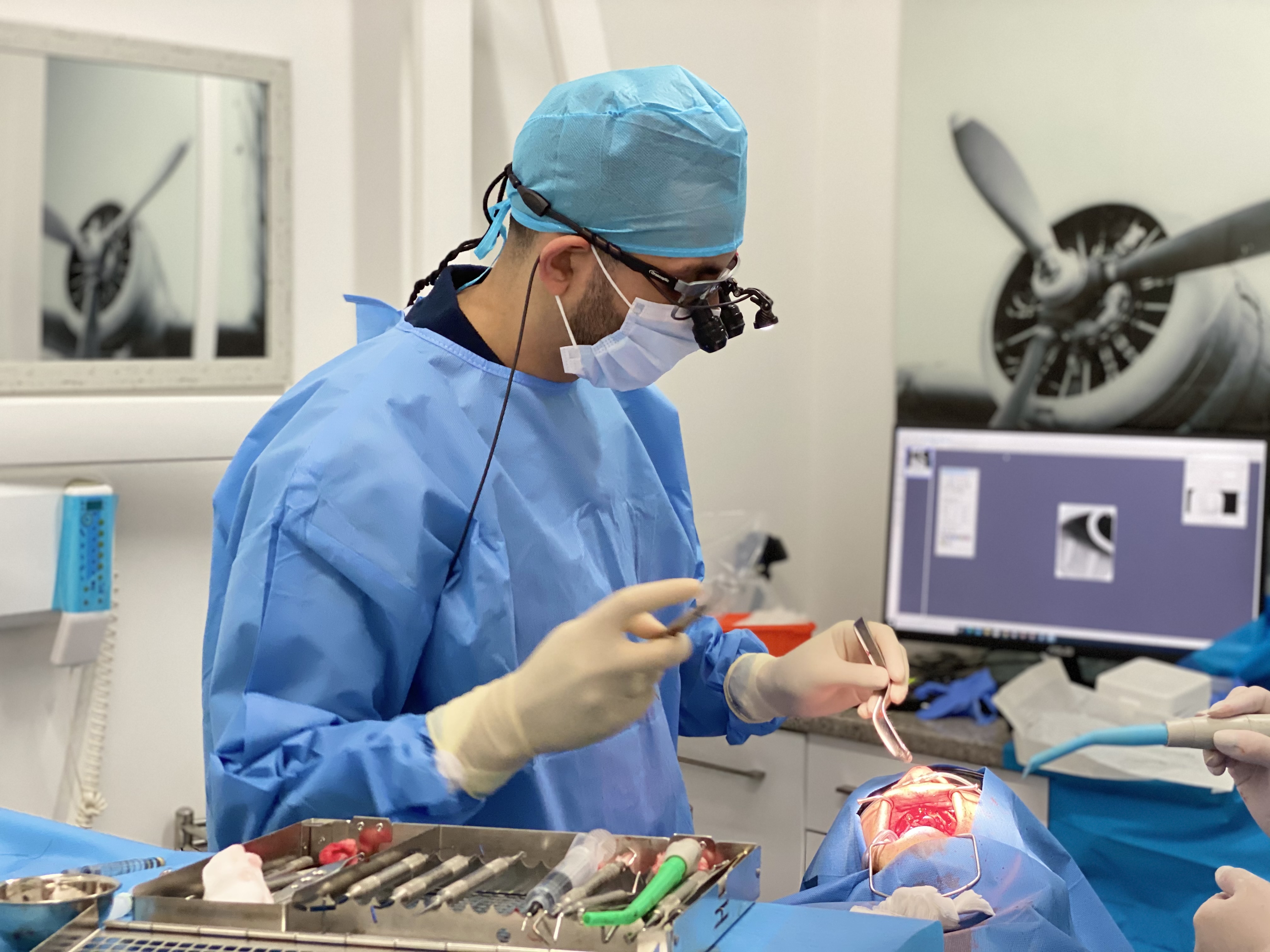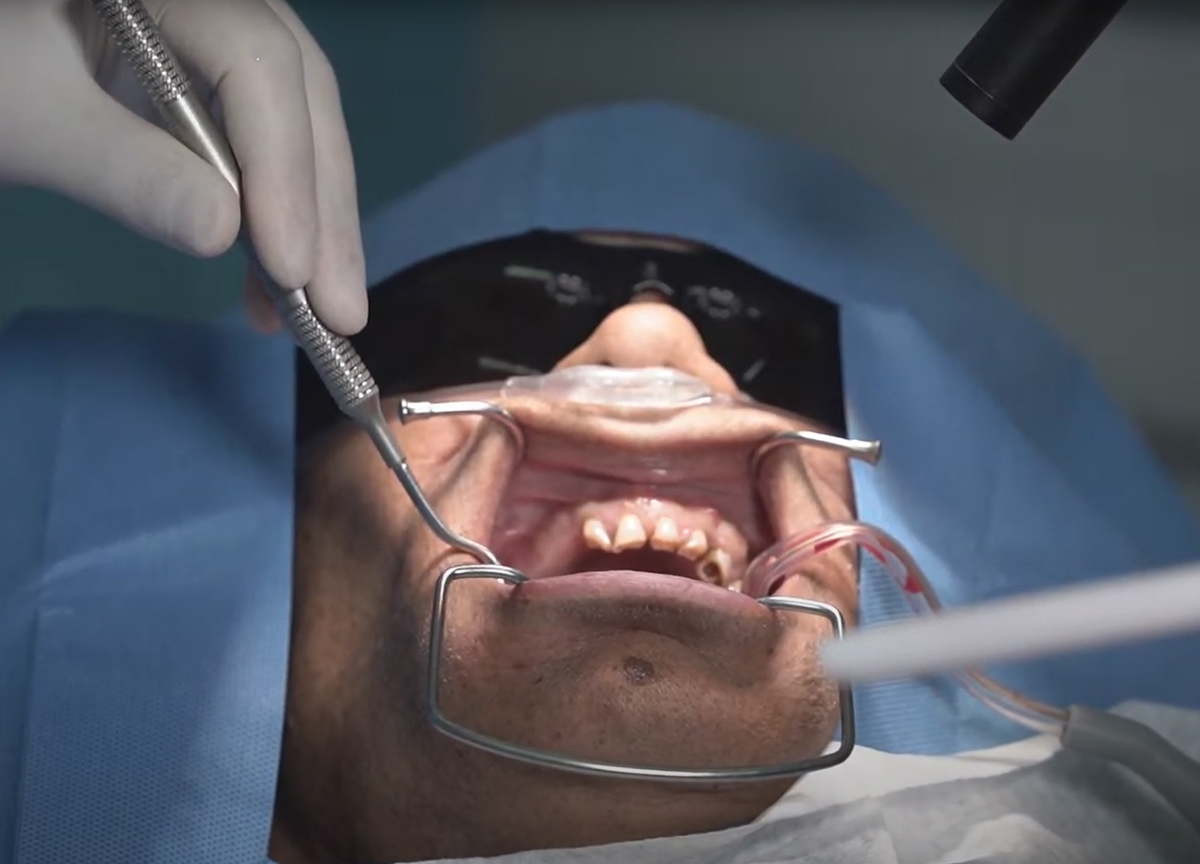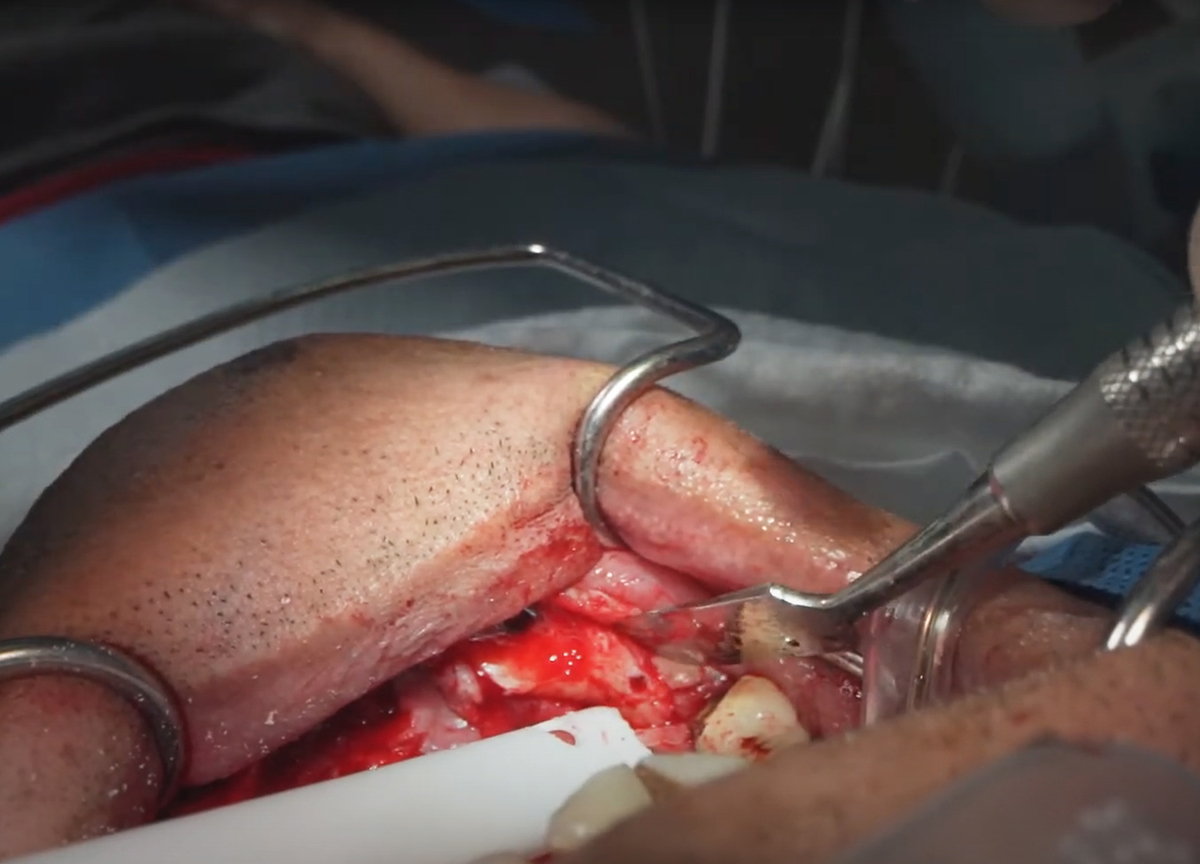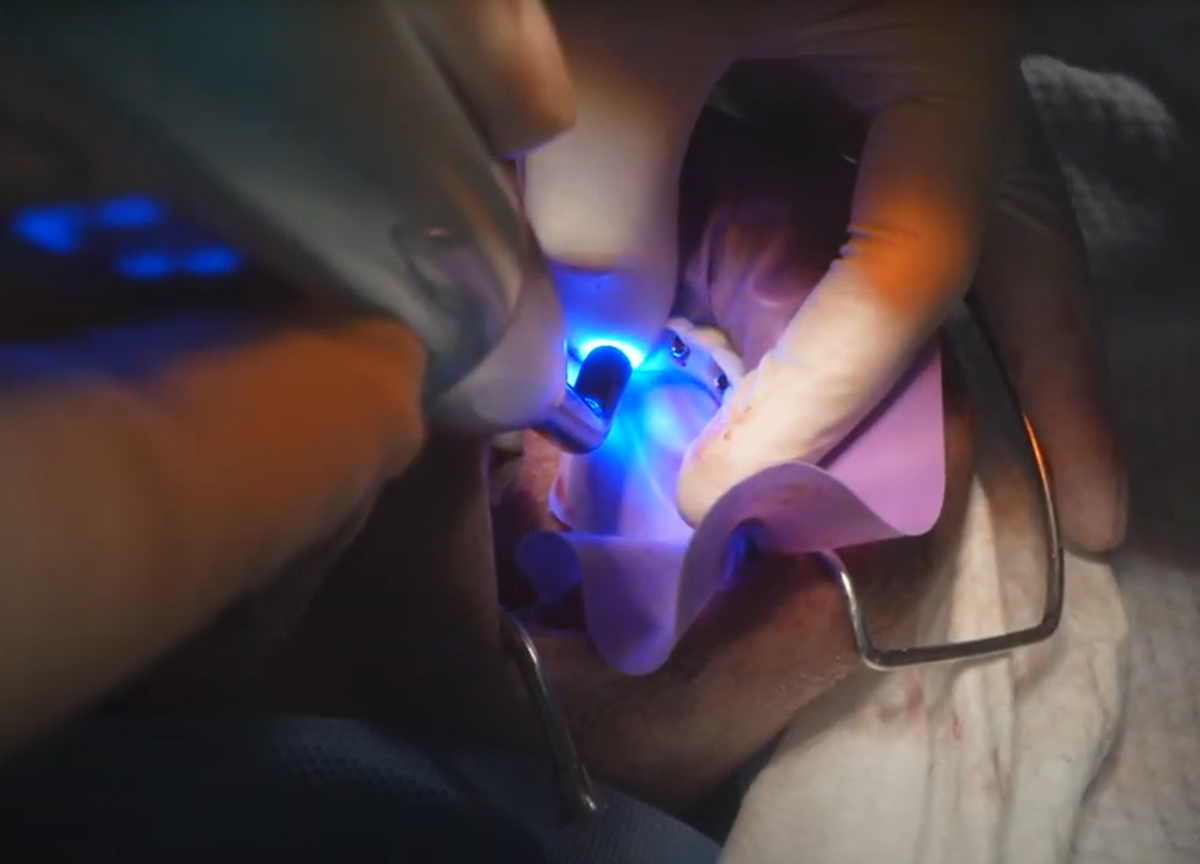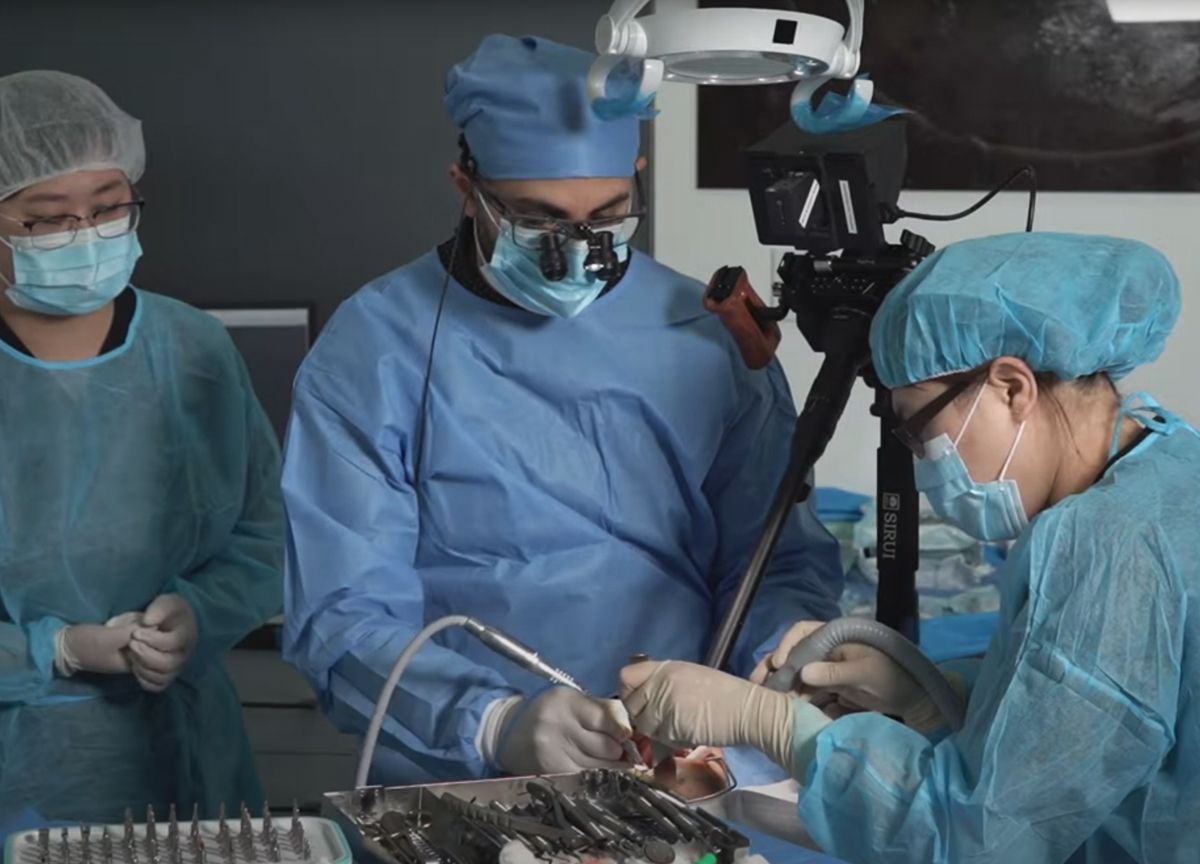
Dental
Implants
Implants
Next Course Dates:
Anterior Zone Implant Cadaver Workshop
18 - 19 July 2023
Sydney Aus
Implant Prosthodontics Workshop for General Dentistry
27 November 2023
Sydney Aus
Limited spaces remaining
Anterior Zone Implant Cadaver Workshop
28 - 29 November 2023
Sydney Aus
Limited spaces remaining
Spaces filling fast! Visit Surgical Dentist to enrol
About the Course
This course is aimed at general dentists looking to incorporate dental implants into their practice.
The focus is the following: Oral surgery, dental implant surgery, dental implant prosthetics. We will take a deep dive into treatment planning, step-by-step analysis and workflow for single and multiple implant rehabilitation.
This is a unique course because you will be exposed to a wide variety of cases and procedures from a clinical perspective with real life practical application taking place during the course with mentorship and supervision.
A practical and easy to refer to step-by-step booklet will be provided for participants looking to take advantage of this course.
Schedule
Seminar Outline
An idea of what you can expect when you take the course.
Anterior Zone Implant Cadaver Workshop
Theory and hands-on models / Practice on CadaversAnterior Zone Implant Cadaver Workshop is a surgically focused, state-of-the-art program for experienced clinicians to manage implant surgery in the anterior zone. The comprehensive curriculum allows you to benefit from:
- A didactic program taught in a small group format.
- A philosophy of rigorous case selection and surgical risk assessment for straightforward surgical indications.
- Combination of practice on models and cadavers
- ”One on one” mentoring for 3 months offsite in case planning and surgical plan
- In-depth learning and practicing ITI guidelines for case selection and management of complicated cases.
Advance Your Surgical Skills With One To One Support
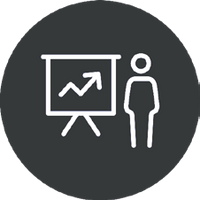
Practice Hands on Models
In depth theory and Implant placement on models first following ITI principles
Cadaver Training
Training almost as close as treating your real case with Immediate implant placement, Grafting and primary closure.
Lab Communication
Guidelines on when and what to communicate to the dental technician for immediate loading.
3 Months Mentoring
One-on-one offsite help in case planning by experienced implantologists to build confidence and peace of mind knowing support is available
Simple Product Portfolio
Helps reduce complexity by initially introducing only a limited number of key products.
Practice and Patient Marketing
Training and demo materials for patient consultation and tools for online and offline practice marketing.
Learning Objectives
- Immediate Implants
- Socket Preservation
- Allografts Harvesting
- Membranes and Fixation
- Guided Bone Regeneration (GBR)
- Soft Tissue Management
Why Patients Prefer Immediate Implants..
Part 2 – Dental implant surgical training
includes hands-on componentrySeminar 2: Implant Surgical Fundamentals
- Foundations of Implant Dentistry
- Taking Records
- Dental Implant surgical componentry and their function
- Relevant Anatomy
- Radiographic assessment - Each dentist will have two CBCTs on DVD or USB to use, you will need to locate vital structures and plan implant surgery.
- Selecting your ideal implant
- Risk assessment
- Surgical Principles Part 1
- Live surgery dental implant placement (morning)
- Gaining Confidence in the Clinic
- Hands-on exercise CBCT manipulation x 3 cases
- Hands-on exercise, dental implant placement
Day 1 - Theory
Day 2 - Practical
Seminar 3: Implant Surgical Protocols
- Foundations of Implant Dentistry part 2
- Surgical Principles part 2
- Mentally Guided Surgery
- Digitally Guided Surgery
- Selecting your ideal patient
- Practical Applications
- Live Surgery free hand – step by step
- Live Surgery fully guided surgery – step by step
- Hands on exercises
- Case Presentations
- Common misconceptions
Day 1 - Theory
Day 2 - Practical
Seminar 4: Implant Surgical - Regeneration
- Foundations of Implant Dentistry part 3
- Guided Bone Regeneration
- Internal Sinus Elevation
- Soft Tissue Management
- Risk assessment
- Surgical Complications
- Live Surgery: bring your patient if you can
- Hands-on Pigs
- Summary and wrap up
Day 1 - Theory
Day 2 - Practical




Part 3 – Dental implant restorative training
includes hands-on componentrySeminar 5: Implant Restorative Blueprint
- Foundation of implant restoratives
- Taking Records
- Componentry and their function
- Restorative connections
- Aesthetic assessment
- Occlusal assessment
- Intraoral scanning and workflow
- Fixture Head impressions and workflow
- Restorative Principles Part 1
- Live patient restoration
- Intraoral Scanning
- Impression taking
- Temporary restoration
- Definitive restoration
- Case presentations and assessments
Day 1 - Theory
Day 2 - Practical
Seminar 6: Implant Rehabilitation Protocols
- Rehabilitation with Dental Implants
- Dental Implant Bridges
- Overdentures
- Indications and Contraindications
- Occlusal considerations
- Restorative considerations
- Complications
- How to test the passivity of your restorations
- Live patient restoration
- Intraoral Scanning for multiple units
- Impression taking splinted approach
- Custom impression coping
- Custom healing abutments
- Case presentations and assessments
Day 1 - Theory
Day 2 - Practical
Seminar X: TBC
- Full Arch Implant Dentistry (Theory and Practical)
- Immediate Loading Principles
- Multiunit Abutments
- Step by step approach to All on X surgery
- Guided surgery approach
- Freehand surgery approach
- Alveolectomy
- Step by step approach to All on X restorative
- Digital Restorative technique
- Analogue Restorative technique
- Re-Live Surgery and Discussion
Your Questions
Q & A
I want to start placing dental implants but I am not sure how to start?
As a general dentist, learning a new skill can be challenging. The good news is that general dentists are already very well equipped with the base knowledge required, they just need to consolidate that knowledge and apply it. Here is a framework on how to achieve dental implant success and confidence in your practice:
- Start with some basic research to see if dental implants is the right skill for you to take on-board your practicing journey.
- Take a comprehensive training course
- Observe experienced professionals
- Seek mentorship
- And most importantly… Get started!
Why should I learn about dental implants?
There are several advantages to learning about dental implants as a dentist, including:
- The ability to offer a wider range of treatment options to patients
- The potential for increased income through the provision of implant services
- The ability to improve patient outcomes and satisfaction,
- Staying current with the latest technology and techniques
- Enhance your professional reputation and credibility
- Opportunities for interdisciplinary collaboration
Why should I consider dental implants as a tooth replacement solution for my patients?
There may be a need to treat patients with missing teeth who may not be candidates for other types of restorative treatments, such as bridges or dentures
Implant-supported restorations can also help to preserve the remaining natural teeth, as they do not require the reduction of healthy tooth structure like you do with dental bridges.
Implant-supported restorations can provide improved stability, function, and aesthetics compared to traditional restorative options.
Why should I consider implementing digital dentistry in my practice?
- Improved accuracy and efficiency:
- Enhanced patient experience
- Greater treatment options
- Increased income
- Staying current with the latest technology
- Interdisciplinary collaboration
- Decreased risk of errors
Why should I upskill in oral surgery?
There are several advantages to upskilling your oral surgery as a dentist, including:
- The ability to offer more comprehensive treatment options to patients.
- Improved patient outcomes.
- Increased patient satisfaction and a higher level of continuity of care as the patient does not have to be referred to another specialist for certain procedures.
- Increased ability to diagnose cases which may otherwise go undiagnosed

